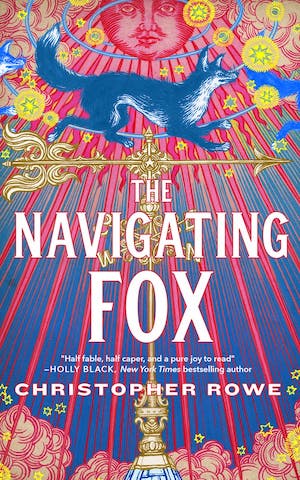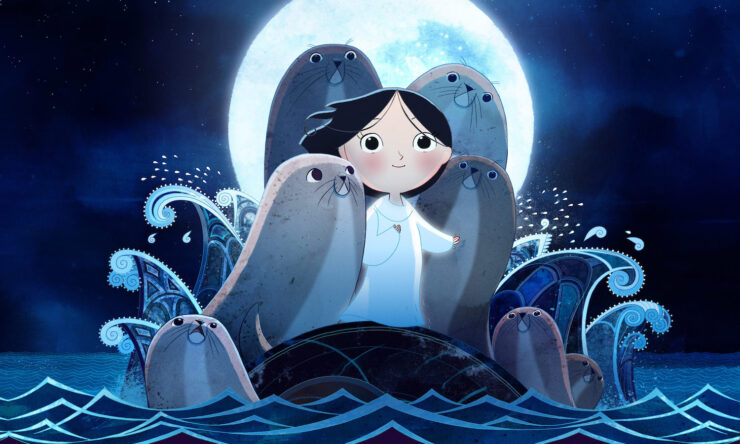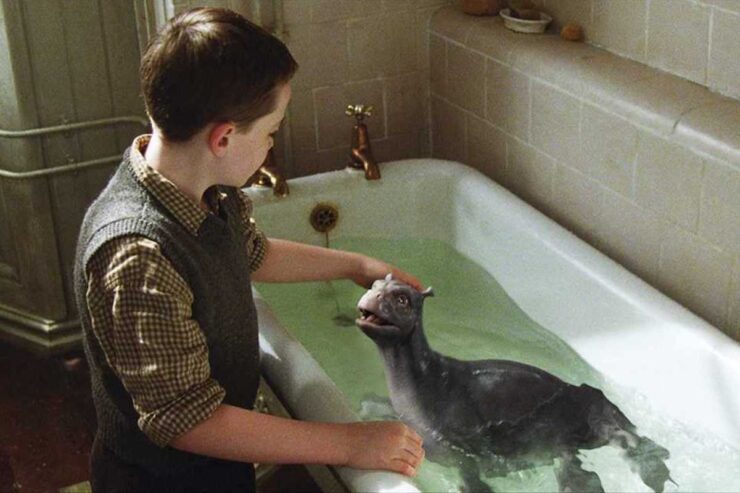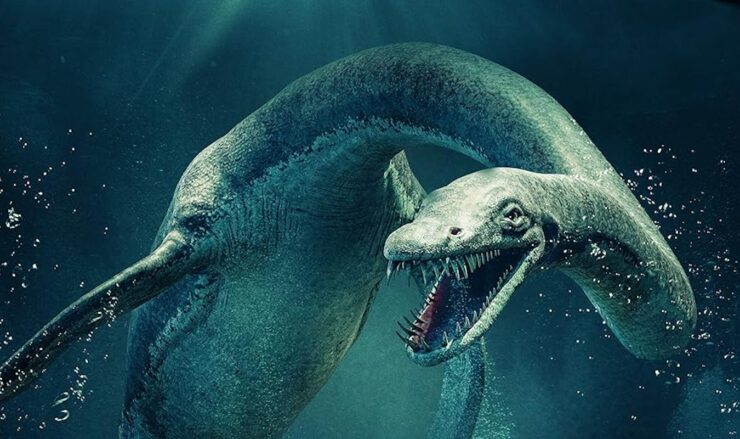The third and final offering in my mini-summer selkie film festival is yet another Irish film, Tomm Moore’s Song of the Sea. The Irish do love their selkies. This, by the auteur of The Secret of Kells, is a masterpiece of animation. It’s visually gorgeous, rich and intricate and magical. It was nominated for an Oscar for best animated film, and it well deserves the honor.
The selkie story here is just the beginning.
Young Ben is the son of a lighthouse keeper and his beautiful wife. When we meet her, she’s heavily pregnant with a child who will, she promises Ben, be his best friend. But when Saoirse is born, the mother is lost. Ben cannot forgive his sister for that. He resents her, insults her, refuses to have any more to do with her than he’s forced to by his oblivious father.
Saoirse is a strange, fey child. She doesn’t speak. She will when she’s ready, the doctor says, but her sixth birthday comes without her having spoken a word.
That’s the day when the sea calls her, and she puts on a small white sealskin from a box that’s been hidden in the lighthouse. She dives into the sea and transforms into a seal. A whole flock of seals comes to swim with her.
But when she comes back to land, she’s ill. Her grandmother, who has come all the way from the big city for Saoirse’s birthday celebration, declares that she is taking the children back to the city. Their father is no fit parent, and the children are being brought up half wild. It’s time they had a proper upbringing.
Saoirse doesn’t or can’t argue, but Ben puts up a fight. He does not want to go. When he’s forced into the car, he immediately starts drawing a map of the route, so that he’ll know the way back home.
Saoirse is even less healthy in the city than she was by the sea. She needs her sealskin, and she needs the ocean, or she can’t live. Her grandmother catches her in the shower, wrapped in a winter coat, which is ruined by the water. The grandmother throws it out—and that sets off the sequence of events that reveal Saoirse’s true nature and her destiny.
There is a faery mound in the city, and three of the Sidhe still live in it. They recognize Saoirse for what she is: the last of the selkies, and the hoped-for savior of all the faery folk.
All the Sidhe but these three have been turned to stone by the lady of the owls, the goddess Macha. She’s been hunting them; if she catches them by the time the gate of the Otherworld opens on All Hallows’ Eve, they’ll all be gone. But Saoirse can save them.
Ben, meanwhile, has been plotting his escape. He’s got his map of the route, and he’s ready to go. He doesn’t intend to take Saoirse with him, but she insists on following, even as sick as she is, and getting sicker.
It’s the Sidhe who convince him that his sister is the most important person in the whole magical world. Ben and Saoirse set off on roads both mundane and magical, pursued by Macha and her owls, and advised by another personage whom they meet, the Great Seanachai.
A Seanachai is a storyteller. This one is losing the memory of his stories, but he pulls together enough of it to show Ben and Saoirse where to go and what they need to do.
Ben already has his own treasury of stories, a book he’s made and illustrated, containing all the tales his mother told him. One of those tells how one of the islands near the lighthouse is actually the body of a giant, the son of Macha. He suffered a great loss of one he loved; his mother turned him to stone, rather than see him live in such grief. That’s the heart of the story, and the beginning of the end for the Sidhe, who have suffered the same fate as Macha’s son.
Ben and Saoirse race to reach the sea before the night ends. Saoirse is fading fast, but Ben carries her onward, helped by his dog Cu, who has run away from the lighthouse to find him. Ben has to get her back to the lighthouse, find her sealskin where their father has thrown it into the sea, and then the find the key that opens it. And then, if he can accomplish that, Saoirse will raise the magic, sing the Song of the Sea, and free the faery folk from Macha’s spell. Once freed, they’ll pass out of the world, and be gone forever.
Buy the Book


The Navigating Fox
Ben’s journey home is also an emotional journey. He realizes that he loves his sister. He loses his resentment; he helps her and supports her. It takes both of them to do what needs doing.
In this world, selkies aren’t forced to marry human men. We aren’t told how Conal met Bronach, but we see how deeply they love each other, and how gutted he is by her loss. It seems that bearing a human son doesn’t harm her, but when her daughter is born, she has no choice; she has to go. We discover, late in the film, that she hasn’t died in childbirth. She’s been called back to the sea. The daughter she leaves behind is also a selkie, but she’s half human, too. That’s what gives her the power to save the Sidhe.
The heart of the story is love. Even Macha does what she does for love of her son. She’s not turning everyone to stone out of malice. She wants everyone to be at peace. She thinks that she’s helping them; she’s giving them a gift, freeing them from grief and pain.
The counterspell is a song, the Song of the Sea. Singing is very much a part of the selkie story. Selkies, like their cousins the Sirens, sing fish into nets and men into their arms. And, in this film, one very young selkie breaks Macha’s spell with her song. Saoirse has found her voice, and her destiny. And Ben is with her at every step, willing even to give his life for her, if that’s what she needs.
It’s a beautiful film. I’m only sorry that after all the wild magic we get to see, it’s taken out of the world, sung through the gate and into its own, separate realm. I wish it could have stayed. Magic can be terrible and dangerous, but it makes the world so much brighter. We need more of it, not less.
Judith Tarr is a lifelong horse person. She supports her habit by writing works of fantasy and science fiction as well as historical novels, many of which have been published as ebooks. She’s written a primer for writers who want to write about horses: Writing Horses: The Fine Art of Getting It Right. She lives near Tucson, Arizona with a herd of Lipizzans, a clowder of cats, and a blue-eyed dog.














